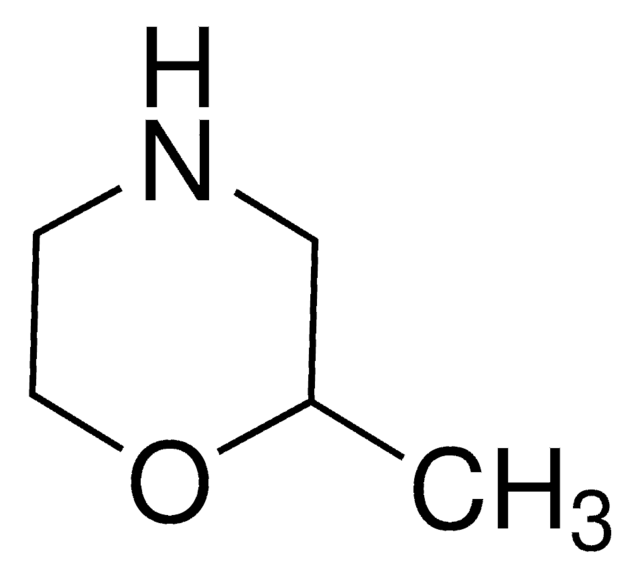M56557
4-Methylmorpholine
ReagentPlus®, 99%
Synonym(s):
N-Methylmorpholine, NMM
About This Item
Recommended Products
vapor density
>1 (vs air)
Quality Level
vapor pressure
18 mmHg ( 20 °C)
product line
ReagentPlus®
Assay
99%
form
liquid
refractive index
n20/D 1.435 (lit.)
bp
115-116 °C/750 mmHg (lit.)
mp
−66 °C (lit.)
density
0.92 g/mL at 25 °C (lit.)
SMILES string
CN1CCOCC1
InChI
1S/C5H11NO/c1-6-2-4-7-5-3-6/h2-5H2,1H3
InChI key
SJRJJKPEHAURKC-UHFFFAOYSA-N
Looking for similar products? Visit Product Comparison Guide
Application
Legal Information
Signal Word
Danger
Hazard Statements
Precautionary Statements
Hazard Classifications
Acute Tox. 4 Oral - Eye Dam. 1 - Flam. Liq. 2 - Skin Corr. 1B
Storage Class Code
3 - Flammable liquids
WGK
WGK 1
Flash Point(F)
53.6 °F - closed cup - DIN 51755 Part 1
Flash Point(C)
12 °C - closed cup - DIN 51755 Part 1
Personal Protective Equipment
Choose from one of the most recent versions:
Already Own This Product?
Find documentation for the products that you have recently purchased in the Document Library.
Customers Also Viewed
Our team of scientists has experience in all areas of research including Life Science, Material Science, Chemical Synthesis, Chromatography, Analytical and many others.
Contact Technical Service













